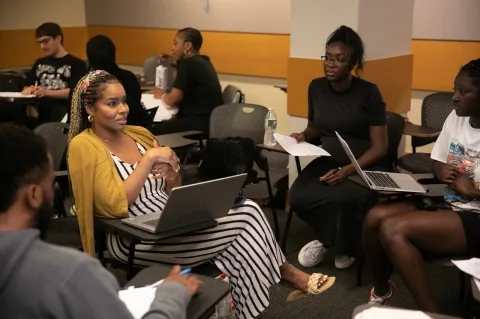
The interesting thing about this group of fellows came out in their introduction to epidemiology and social epidemiology lecture. Many of them were on the ground during COVID, doing front-line, public health prevention work. Even though they have different areas of interest, the pandemic impacted them all and put them all in this shared space. This is the first time I’ve run this program where the students said, “I need more epidemiology!”
This is the best group of students to teach—they’re so engaged that our faculty cannot make it through their slides! They ask so many great questions and have great stories to contribute, and make the discussion richer with their real-world examples and lived experiences. All the data we’re giving them is New York City-based, and so they have a lot of context for that.
What do fellows take away from this program?
What I really hope they walk away with is to be good consumers of research. We do a lot of direct marketing to consumers of research these days, but most people haven’t been trained to understand it. There’s good research, and there’s bad research. And we now put the onus on the public to make those decisions or live with the media’s decisions.
I also want them to know how to partner with academic institutions, and the benefits and risks of doing so. I know how great of an asset academic institutions can be to communities, but many people don’t know how to access that. I hope that they understand how to tap into what it means to be in New York City with all these resources—universities, great libraries, knowledge—what it can mean for them and the work that they’re doing. They’re already running programs, but I think sharpening their skills, being up to date on the latest information, and knowing how to access experts doesn’t hurt.
One of our fellows this year said I should put a disclaimer before people apply that says, “you’ll never look at your community the same way again.” You’ll learn some things you just can’t unlearn, and for some people, it was taking off the rose-colored glasses. When you understand the history of this country, there’s a reason why things play out the way they play out.

